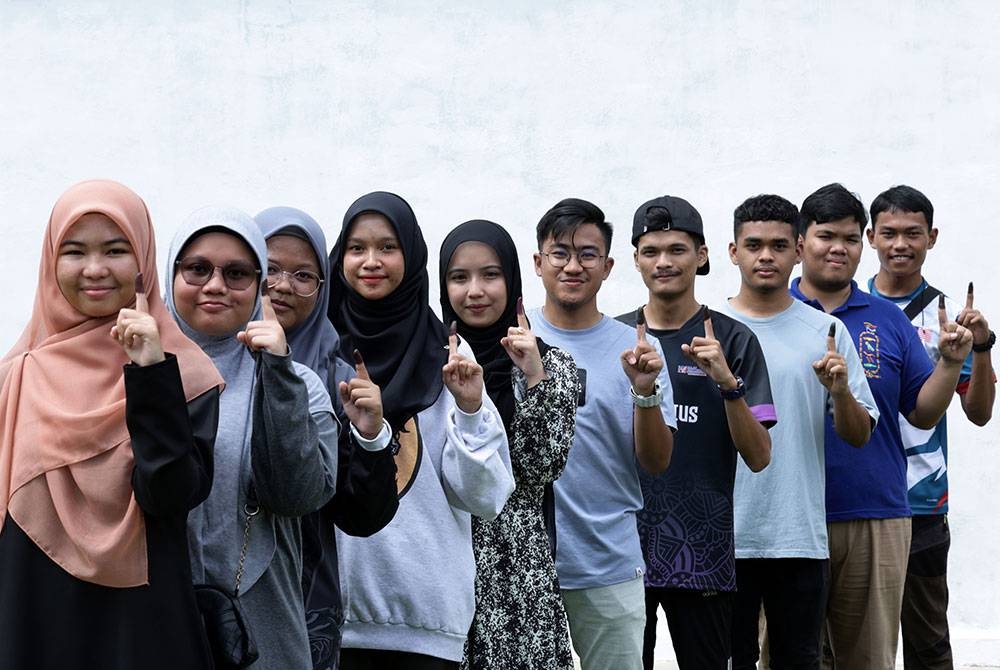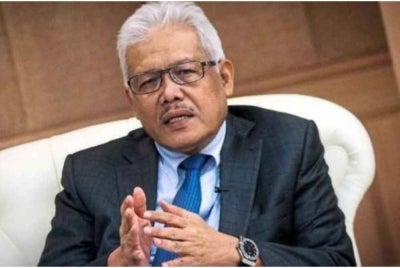'Young voters' impact in upcoming state election difficult to predict'
KHAIRIL ANWAR MOHD AMIN
THE Election Commission (EC) has finally announced that the six-state polls will take place on August 12, after a delay of over six months.
The states involved in the election are Selangor, Negeri Sembilan, Penang, Kedah, Terengganu, and Kelantan.
The nomination date has been set for July 29, with early voting scheduled for August 8.
The campaign period will run for 14 days, starting from the nomination day until 11:59 pm on August 11.
This state election is expected to be the second-largest political battleground following the 15th General Election (GE15).
Unlike GE15, where the battle was primarily two-cornered between candidates for the 222 parliamentary seats and 117 seats in the state legislative assembly, this election involves multiple coalitions, including Perikatan Nasional (PN), Pakatan Harapan (PH), Barisan Nasional (BN), and Gerakan Tanah Air (GTA).
The formation of the Unity Government has led to a reconfiguration of political alliances, enabling BN to collaborate with PH for the first time.
The Malaysian United Democratic Alliance (Muda) party, previously aligned with PH, has also announced its decision to run independently, becoming the third block challenging PH-BN and PN.
With PN still led by Bersatu and the additional support of former two-time Prime Minister Tun Dr Mahathir Mohamad, the question arises as to whether the coalition can retain the support of young voters, who played a significant role in GE15.
Out of the 21.1 million eligible voters in GE15, 1.3 million were first-time voters under the age of 21.
However, political analysts believe that the loyalty of young voters is not guaranteed.
A post-GE15 survey conducted by the Ilham Centre until last March indicated that the majority of young voters who supported PN are likely to make different decisions in the upcoming election.
Policy Studies lecturer at Universiti Malaysia Terengganu, Associate Professor Dr Mohd Yusri Ibrahim, opined that young voters, particularly Malay Muslims, temporarily supported PN in GE15 but may now consider voting for PH.
"In GE15, young voters, especially the Malay Muslims voted for PN.
"But the vote is temporary and not loyal. Ahead of the state polls later, this group is still open to supporting any party.
"Even findings show that some who voted for PN in the last GE expressed their willingness to vote for PH.
"It means that their support is very dynamic and can change according to the situation," said Yusri.
Senior lecturer in Political Science at the Faculty of Administrative Science & Policy Studies of Universiti Teknologi Mara, Mujibu Abdul Muis, also echoed similar sentiment expecting youngsters to be more informed, experienced and rational in determining their party of choice.
Acknowledging the swing in young voters' preferences is attributed to their dynamic and situational support, Mujibu believes that young voters will make their decisions based on the political developments leading up to the state election.
"There are a number of factors that lead to the change in the trend, which is that this group of young voters under 30 years old are not partisan nor on-the-fence voters.
"Instead, they would wait and see to examine the political development in the last two months leading up to the state election in the six states before deciding which party to vote for.
"I believe that after the establishment of the Unity Government, Prime Minister Datuk Seri Anwar Ibrahim's charisma and the government's commendable achievements in dealing with economic issues and the needs of young people will influence their views and perspectives on PH-BN," he said.
He stressed that young voters are less concerned about internal conflicts within the Unity Government and are more focused on the coalition's initiatives to improve their quality of life, job opportunities, and education system.
Overall, the state election is expected to witness a shifting dynamic among young voters, who will carefully evaluate the various coalitions' plans and initiatives before casting their votes.
"Perhaps there is a slight perception formed, but they focus more on the overall aspect of the Unity Government's efforts to improve the country's socio-economic situation than PN's plans.
"I'm sure young people will be more critical and not judge based on party.
"Instead, they are inclined to choose which coalition can capture their imagination in terms of initiatives to improve living standards, job opportunities and a more proactive and conducive education system," Mujibu added.
Download Sinar Daily application.Click Here!














